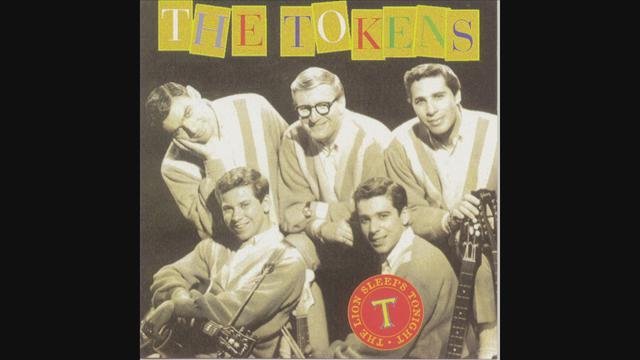

She was happy because the husband's song was playing. Nsele said she remembered hearing her father's tune on the radio as a teenager in the 1970's and recalled: "I asked my mother, 'Who are those people?' She said she didn't know. Linda's survivors received a total of perhaps $17,000 in royalties, according to Hanro Friedrich, the family's lawyer.Ī lawyer for Abilene Music, the publishing house for "The Lion Sleeps Tonight," did not return repeated calls for comment.īut Owen Dean, a South African copyright lawyer who also represents the family, said the amount was a mere pittance compared with the profits the song generated.
#Wimoweh definition movie#
Linda's family really lost out, his lawyers claim, was in "The Lion Sleeps Tonight," a megahit.įrom 1991 to 2000, the years when "The Lion King" began enthralling audiences in movie theaters and on Broadway, Mr. "I have always left money up to other people.

Linda received less than the 50 percent of publishing royalties Mr. Seeger, now 86, adding that he learned only recently that Mr. "I didn't realize what was going on and I regret it," said Mr. Over the years, he and his family have received royalties for "Wimoweh" from the Richmond Organization, the publishing house that holds the rights to that song, though not as much as they should have, Mr.

How much he should have collected is in dispute. Linda died in 1962, at 53, with the modern equivalent of $22 in his bank account, his widow had no money for a gravestone. "Chicken feet and pap, chicken feet and pap," she said. Two died as babies, one of malnutrition, said his daughter Ms. When they passed a grade in school, their reward was an egg. His eight children survived on maize porridge, known as pap. He also got a job sweeping floors and serving tea in the company's packing house. Linda received 10 shillings - about 87 cents today - when he signed over the copyright of "Mbube" in 1952 to Gallo Studios, the company that produced his record. Instead, he lived in Soweto with barely a stick of furniture, sleeping on a dirt floor carpeted with cow dung. It was translated into languages from Dutch to Japanese. Some 150 artists eventually recorded the song. He added lyrics beginning "In the jungle, the mighty jungle." A teen group called the Tokens sang it with a doo-wop beat - and it topped charts worldwide. Linda's recording and transformed it into the melody. Weiss took the last 20 improvised seconds of Mr. There followed a jazz version, a nightclub version, another folk version by the Kingston Trio, a pop version and finally, in 1961, a reworking of the song by an American songwriter, George Weiss. Seeger sang it as "wimoweh," and turned it into a folk music staple. His version differed from the original mainly in his misinterpretation of the word "mbube" (pronounced "EEM-boo-beh"). In the early 50's, Pete Seeger recorded it with his group, the Weavers. recording of "Mbube" was probably the first African record to sell 100,000 copies.įrom there, it took flight worldwide.

He had been staying there since morning and he was hungry." The lyrics were spartan - just mbube and zimba, which means "stop" - but its chant and harmonies were so entrancing that the song came to define a whole generation of Zulu a cappella singing, a style that became known simply as Mbube. "The lion was going round and round, and the lion was happy," she said. Linda's youngest surviving daughter, said it had been inspired by her father's childhood as a herder protecting cattle in the untamed hinterlands. Linda's group, the Original Evening Birds, into a recording studio where they produced a startling hit called "Mbube," Zulu for "The Lion." Elizabeth Nsele, Mr. He sang soprano over a four-part harmony, a vocal style that was soon widely imitated.īy 1939, a talent scout had ushered Mr. After moving to Johannesburg in his mid-20's, he quickly conquered the weekend music scene at the township beer halls and squalid hostels that housed much of the city's black labor force. Linda never learned to read or write, but in song he was supremely eloquent. Were he still alive, Solomon Linda might turn it into one heck of a ballad.īorn in 1909 in the Zulu heartland of South Africa, Mr. It is fraught with racism and exploitation and, in the end, 40-plus years after his death, brings a measure of justice. JOHANNESBURG - As Solomon Linda first recorded it in 1939, it was a tender melody, almost childish in its simplicity - three chords, a couple of words and some baritones chanting in the background.īut the saga of the song now known worldwide as "The Lion Sleeps Tonight" is anything but a lullaby.


 0 kommentar(er)
0 kommentar(er)
